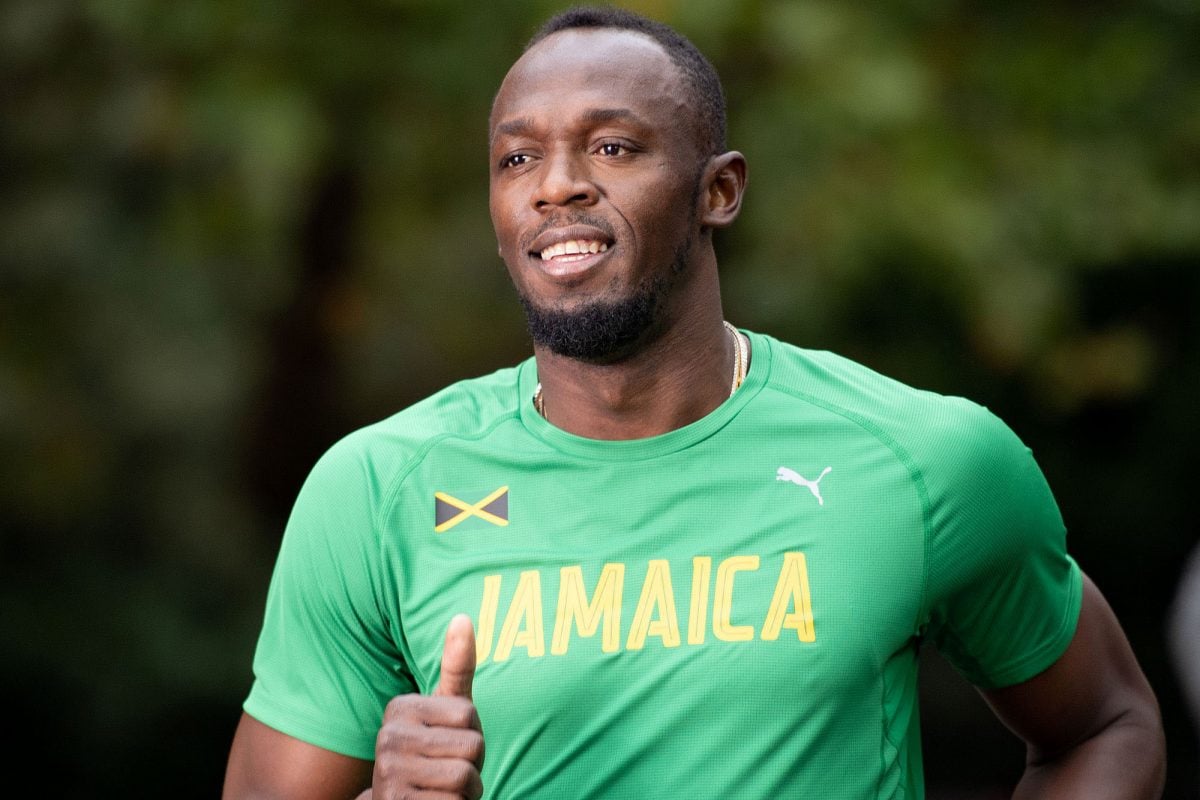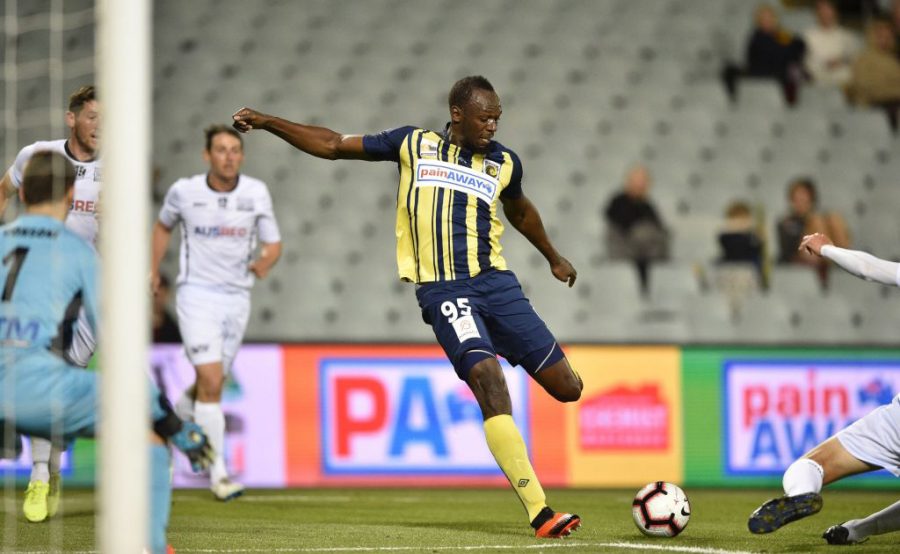Usain Bolt Says He Should Have Pursued Football In Europe

Six months after he was lampooned in a Sportsmax column, about his “laborious months of campaigning” in 2017 to become a professional footballer being nothing more than a “glorified publicity stunt”, track icon, now Dancehall music producer, Usain Bolt, is insisting that if he had remained in Europe, he would have reaped success.
His comments come two months after being criticized for similarly dabbling in Dancehall and releasing his Living The Dream track collab with his manager NJ, which has been rubbished by Popcaan, local comedians, and a slew of Dancehall fans.
Bolt said that in hindsight, he should not have sidestepped European clubs, as the teams on that continent are better, and he would have been exposed to better training and techniques.
According to him, at the time, he thought that being signed to a club in far-flung countries such as Australia, would have kept him out of the media limelight, so he could focus fully on perfecting his game.
“When I decided that I was going to go into it, I was like: I don’t want to stay in Europe. Because of who I am, in Europe, the sole attention is going to be on me. Anything that I go, the media is always gonna be there; they are going to want to do interviews and it’s gonna be so overwhelming,” Bolt explained during a recent interview on Irie FM’s Easy Skankin show with K’Shema Francis.
“So I decided to go as far as possible away. But I think the correct thing to do was to actually stay in Europe where there were much better teams and people who understood… and would teach me more and I would get a lot more and get a lot more respect… So that was mistake. But if I knew I would have stayed in Europe,” Bolt emphasized.
It was Bolt’s explanation of why he chose to pursue football after quitting athletics though, which helped to validate Sportsmax’ sports editor Kwesi Mugisa’s sentiments about him lacking competence to become a professional in “The Beautiful Game”, in an August 2020 column titled “You did get a fair chance Bolt, you were just ‘fairly’ awful at football”.
His comments had come after he learnt that Bolt had said in an interview that he “was not given a fair chance to play football”.
Mugisa had said that Bolt should know his limitations, as although he earned undying admiration for his sprinting exploits, it was always clear, “that fumbling, bumbling, tumbling escapes on the football pitch, would never amount to anything more than a glorified publicity stunt”.
The sport reporter argued that while football is a very easy sport to watch, love and have strong opinions about, and while some people even believe it easy to play in their “weekly treks to weekend scrimmage games, playing well, let alone playing well enough to be a professional at the highest level, was another thing entirely”.
On Thursday, Bolt’s utterances during the interview confirmed Mugisa’s opinions of his football pursuits being done on a whim.
“During track and field, I was always watching Manchester United… I watch so much football and I thought that, if some baller – mi naw guh call no name, yuh know dem – if dem man deh can play football, mi can probably dweet,” the track star explained.
“And it is something that over the years I have said, you know what, I would love to try. It was … experience. I really enjoyed it and is something that over the years that I have said; you know, I would love to try and it was a great experience; I definitely enjoyed it,” he added.
Bolt said in the interview that he also did a few training sessions with his ‘A-Team’ colleague and retired international footballer, Ricardo “Bibi” Gardner, who was coaching Harbour View Football Club at the time.
“He knew my ability at the time so it was to help me to really refine my skills and to get better why I went to him, because I knew him and respected him. He really helped me and pushed me to actually play football,” he said of the former Reggae Boy and Bolton Wanderers player.

In last August’s article, Mugisa had also said while Bolt’s campaign to become a professional footballer may not have caused football fans “to splutter uncontrollably with ceaseless bouts of irrepressible laughter”, it was hard to justify the sprinter being given a trial “anywhere at all where serious football is played”.
“The shimmering reflection Bolt cast after putting down his spikes and picking up cleats was, Wayne Rooney, a player whom he astonishingly believed was at the same talent level,” he mocked.
“What is less understandable, however, is that three years after retirement and at least two after the professional football fiasco, the world record holder believes that his lack of success was down to a lack of opportunity. It’s time to be honest, Usain, it was down to a glaring and obvious lack of ability,” he declared.
Mugisa also argued that with the rare exception, exceptionally gifted footballers spend their childhood years ceaselessly perfecting their craft, and even then, some still find themselves well short of making the professional-grade.
“How likely was it that Bolt, then a 31-year-old athlete, who never even played the highest level of high school or primary school football, would decide to take up the sport professionally after a few scrimmage games and make the grade?” Mugusa said.
“His only qualifier for getting a trial was that he held track and field sprint records. Fantastic records, mind you, but that is a remarkably clear case of comparing apples to oranges,” he added.
